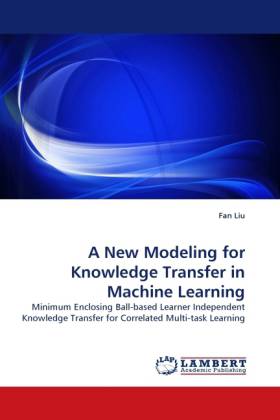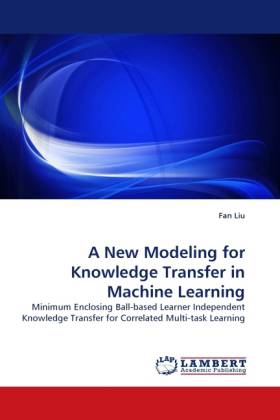
Bedankt voor het vertrouwen het afgelopen jaar! Om jou te bedanken bieden we GRATIS verzending (in België) aan op alles gedurende de hele maand januari.
- Afhalen na 1 uur in een winkel met voorraad
- Gratis thuislevering in België vanaf € 30
- Ruim aanbod met 7 miljoen producten
Bedankt voor het vertrouwen het afgelopen jaar! Om jou te bedanken bieden we GRATIS verzending (in België) aan op alles gedurende de hele maand januari.
- Afhalen na 1 uur in een winkel met voorraad
- Gratis thuislevering in België vanaf € 30
- Ruim aanbod met 7 miljoen producten
Zoeken
A New Modeling for Knowledge Transfer in Machine Learning
Minimum Enclosing Ball-based Learner Independent Knowledge Transfer for Correlated Multi-task Learning
Fan Liu
Paperback | Engels
€ 69,45
+ 138 punten
Omschrijving
Multi-Task Learning (MTL), as opposed to Single Task Learning (STL), has become a hot topic in machine learning research. MTL has shown significant advantage to STL because of its ability to facilitate knowledge sharing between tasks. This thesis presents my recent studies on Knowledge Transfer (KT) the process of transferring knowledge from one task to another, which is at the core of MTL. The novelly proposed KT algorithm for correlated MTL adapts learner independence, thus empowering any ordinary classifier for MTL. The proposed MEB-based KT is on the basis that in the feature space, the two correlated tasks share some common input data that lie on the overlapping regions of the feature spaces in-between the two correlated tasks. The main idea is to find the correlating knowledge overlapping regions of the two tasks and transfer the related data regardless of the learner employed. KT is done by building a correlation space via MEBs and transferring the enclosed instances from the primary task to the secondary task. The extent of KT depends on the amount of overlapping instances between two tasks. This book is required reading for post-graduates and researchers in MTL.
Specificaties
Betrokkenen
- Auteur(s):
- Uitgeverij:
Inhoud
- Aantal bladzijden:
- 88
- Taal:
- Engels
Eigenschappen
- Productcode (EAN):
- 9783844397321
- Verschijningsdatum:
- 13/05/2011
- Uitvoering:
- Paperback
- Afmetingen:
- 152 mm x 229 mm
- Gewicht:
- 141 g

Alleen bij Standaard Boekhandel
+ 138 punten op je klantenkaart van Standaard Boekhandel
Beoordelingen
We publiceren alleen reviews die voldoen aan de voorwaarden voor reviews. Bekijk onze voorwaarden voor reviews.









